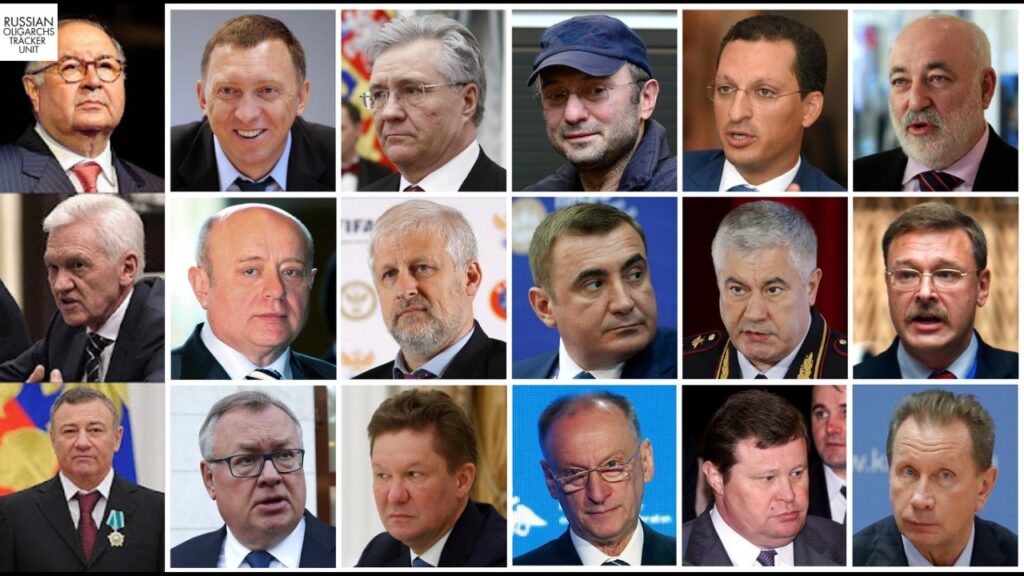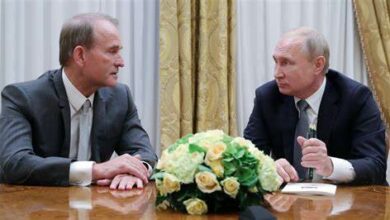Justice Department Oligarch Hunters Cast a Wider Net to Include Facilitators
In the world of international sanctions enforcement, the landscape is evolving. Prosecutors are widening their gaze, moving beyond the high-profile Justice Department Oligarch Hunters who have long been the primary focus. Instead, they are turning their attention to the lawyers, accountants, and other professionals who facilitate the evasion of U.S. sanctions.
At the forefront of this paradigm shift is Task Force KleptoCapture, led by Andrew Adams. In this comprehensive interview, Adams delves into the task force’s significant accomplishments and the formidable challenges it encounters in its mission to disrupt the intricate networks that enable Kremlin allies to circumvent sanctions.
Justice Department Oligarch Hunters Widen Scope

Short-Term Successes: The journey of Task Force KleptoCapture began with impactful short-term successes. Among the notable achievements was the arrest of Jack Hanick in the United Kingdom. Hanick’s apprehension was a pivotal moment, representing a shift from targeting Justice Department Oligarch directly to those aiding and abetting their illicit activities. Additionally, the task force managed to seize yachts owned by influential figures like Suleiman Kerimov and Viktor Vekselberg, both with close ties to the Kremlin, both politically and economically. These bold actions targeted high-profile assets and individuals, sending a clear message that no one involved in sanctions evasion would be immune from scrutiny.
Long-Term Goals:
Complementing its short-term victories, Task Force KleptoCapture embarked on a long-term project with a broader mandate: tackling facilitators and the intricate web of money laundering schemes. The core objective is to thwart sanctions evasion and the funding of networks that enable sanctions violations and export control breaches. While short-term successes are important, the task force understands that lasting change requires dismantling the infrastructure that sustains sanctions evasion.
International Cooperation:
One of the central challenges faced by Task Force KleptoCapture was securing international cooperation for arrests and asset seizures. Historically, the task force grappled with reluctance from some nations to align their sanctions regimes with those of the United States. However, a significant shift occurred in February 2022, when many countries began aligning their sanctions policies with the U.S.
This alignment marked a critical turning point, making international cooperation more robust. Nonetheless, hurdles persist, particularly in the European Union (EU) and the United Kingdom (U.K.), where the enforcement of newer sanctions measures remains a complex and evolving process. The task force continues to work diligently to foster collaborative relationships and navigate the intricacies of international legal frameworks.
Challenges in Non-Cooperative Jurisdictions:
In non-cooperative jurisdictions like Turkey and the United Arab Emirates (U.A.E.), which have not responded decisively to Russia’s actions, enforcement of U.S. sanctions remains an uphill battle. However, it is worth noting that even in these challenging areas, pockets of cooperation exist. The shifting winds of politics and global diplomacy can swiftly alter the landscape, potentially leading to substantial support in the future. Task Force KleptoCapture remains adaptable and vigilant in its approach to tackling sanctions evasion worldwide.
Effectiveness and Goals
Andrew Adams acknowledges that the ultimate goal of targeting oligarchs is beyond the scope of his task force’s mandate. However, he emphasizes the value of limiting the financial resources available to key Kremlin supporters. These individuals often serve as propagandists or financial backers for the Kremlin’s actions. Hindering their access to funds can be a valuable and worthwhile long-term endeavor, as it can disrupt the Kremlin’s ability to advance its agenda both domestically and internationally.
Facilitators Under Scrutiny
Task Force KleptoCapture’s primary focus is on professionals who play pivotal roles in sanctions evasion networks. This includes attorneys, real estate agents, maritime and aviation service providers, and corporations. By gaining the cooperation and respect of these facilitators, the task force aims to disrupt the flow of funds to the Kremlin and sanctioned entities. While most professionals worldwide understand the importance of compliance with sanctions laws, there remain outliers, even within Western countries, who may require enforcement actions to deter their involvement in sanctions evasion networks. The overarching goal is to prevent the formation of resilient and enduring networks that defy sanctions, thereby safeguarding international peace and security.
Task Force KleptoCapture, under the capable leadership of Andrew Adams, stands as a beacon of commitment to disrupting the mechanisms that allow Russian oligarchs and their allies to evade U.S. sanctions. Despite the challenges encountered in non-cooperative jurisdictions, the task force has made remarkable progress in targeting facilitators and limiting the financial resources available to Kremlin supporters. Their unwavering focus on professionals involved in money laundering and sanctions evasion is central to their strategy for long-term success. As international sanctions enforcement continues to evolve, Task Force KleptoCapture remains at the forefront of efforts to maintain the integrity of sanctions regimes and promote global stability.








